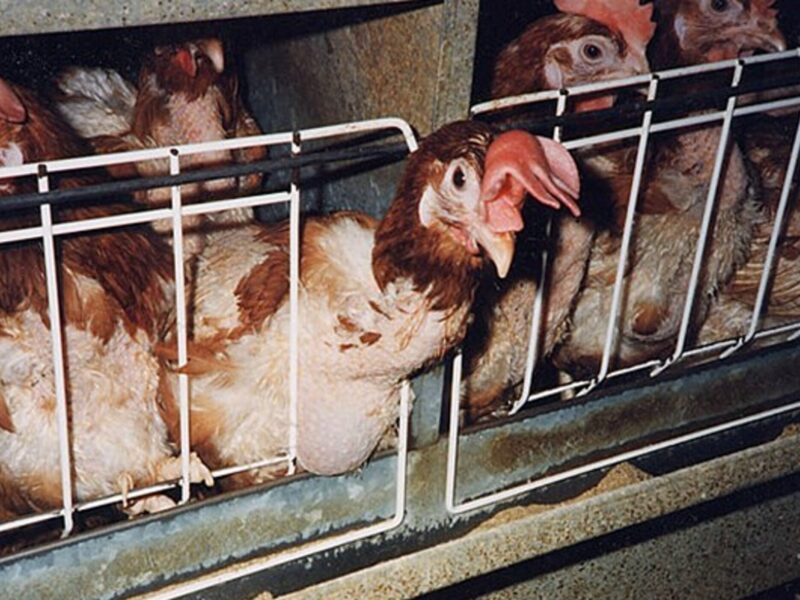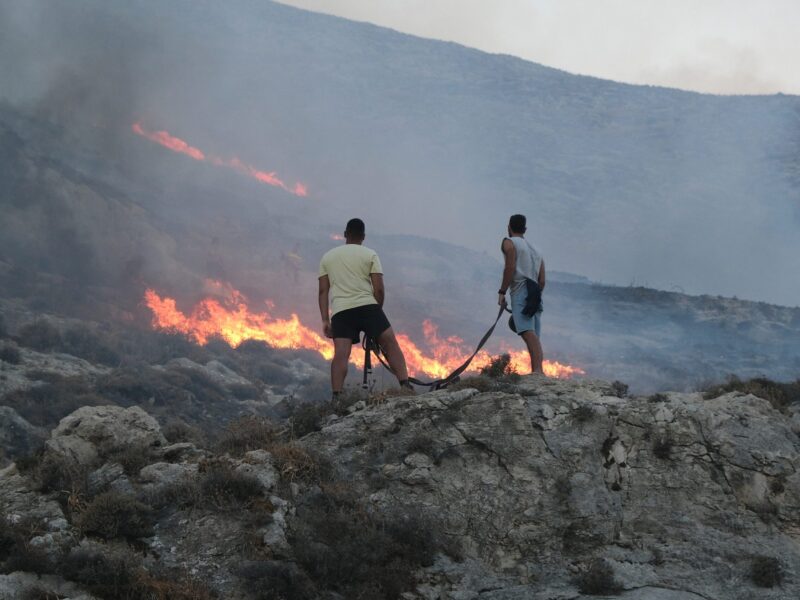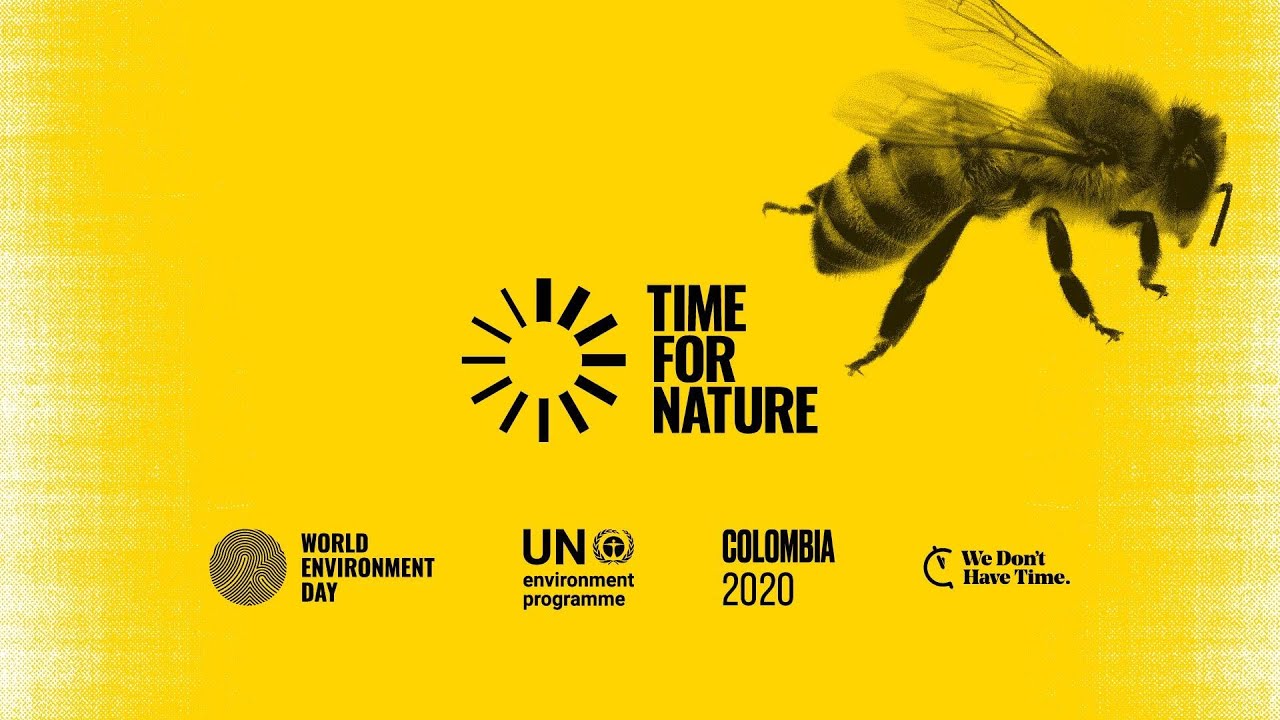
Enhancing Nature’s Food Basket for All
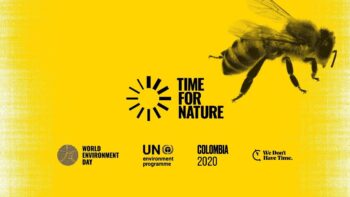
Copyright: United Nations Environment Programme
Earlier this week I was delighted to accept an invitation to participate in the Act #ForNature Global Online Forum. This was an International Consultation of Major Groups and Stakeholders as part of preparatory meetings leading up to the United Nations Environment Assembly (UNEA 5) next year.
The panel session was on Health and Environment and included Executive Director at UNEP and UN Under-Secretary General, Inger Anderson, as well as many others.
The overall question for this session was: What does a post-pandemic recovery look like?
Seizing the moment to protect the future
As countries start to emerge from Covid-induced lockdown, what has become clear is that the coronavirus pandemic has shown how fragile society really is; and that for the sake of a decent tomorrow, big changes are needed today.
Whilst Covid-19 is widely seen as having emanated from China’s wet markets and the illegal wildlife trade, it is but the latest disease to emerge from our appalling treatment of animals.
Industrial agriculture, where thousands of animals are caged, crammed and confined, produces the perfect breeding ground for disease. Highly pathogenic strains of Avian Influenza or Swine Flu are but two examples, the latter causing a pandemic only a decade ago killing some half a million people.
Industrial agriculture is not only the biggest cause of animal cruelty on the planet, it’s a major driver of deforestation, pollution and decline in the world’s wildlife. Forty per cent of our entire grain harvest is fed to industrially reared animals. Globally, that is equivalent to a land area the size of the entire European Union or half the United States of America. If fed directly to people, it would be enough to sustain four billion people. Yet, as animal ‘feed’, much of the food value is lost in terms of both calories and protein in conversion to intensively produced meat, milk and eggs.
Food and farming are cross-cutting issues that connect many of the world’s most serious environmental sustainability and health challenges. Nearly two thirds of threatened species are imperilled by the expansion and intensification of agriculture. Failure to tackle food demand, particularly for meat and dairy products, could make the 1.5C limit unachievable.
In this age of climate and biodiversity emergency, a whole food system approach is needed to tackle the increasing challenges facing humanity. Multi-dimensional challenges of producing sufficient nutritious food and making it available and affordable for everyone, everywhere without exceeding planetary boundaries.
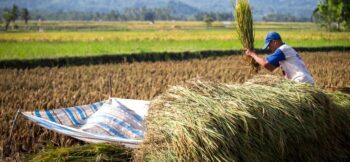
A farmer harvests rice at Bontomanai village in Indonesia | Credit: United Nations Environment Programme
There is a growing need for a wholesale move away from unsustainable industrial farming toward a future-fit food system based on regenerative agriculture.
In the words of the United Nations, we need to seize this moment to “build back better.” I believe this means we need to reset the way we view animals, both farmed and wild and recreate more sustainable, resilient and inclusive societies.
It goes without saying that we need to achieve this whilst ensuring fair livelihoods and the well-being of all producers and workers in the food supply chain, including indigenous communities.
The crucial thing for genuine sustainability is that farming works in harmony with nature.
I’ve seen this for myself all around the world.
In South Africa, I’ve seen an up-and-coming farmer with chickens that follow his cows in a mixed rotation. No need for antibiotics – the animals are naturally healthy.
In the US, I know of farmers looking after the soil by keeping it covered all year round, using cover crops, which sheep will then graze in the winter. Avoiding ploughing the soil and thereby disturbing the immense ecosystem in the soil.
And in my country, here in the UK, I’ve seen pigs grazing with cows, both feeding on herb-rich pastures.
In these scenarios, there’s no need for lots of chemical fertilisers or pesticides or antibiotics – soils are fertilised naturally, insect and weed pests are kept at bay by the diversity of crops and animals, and everything stays more naturally healthy.
And the great thing about this regenerative, restorative agriculture is that it doesn’t need lots of money spent on expensive equipment or chemicals. It’s the perfect way for young people to get involved in creating the future of food and farming. (Witness the enthusiasm and passion of UNEP Young Champion, chef and farmer, Louise Malbulo discussing the link between biodiversity and resilient food systems with Inger Anderson and myself to celebrate last week’s World Environment Day.)
Returning now to the global response to the current Covid-19, what has been notable is how far and fast governments have moved to protect people.
Yet, these actions stand in stark contrast to efforts on factory farming, climate change, the collapse of nature, our soils and wildlife. In the words of Dr Jane Goodall, speaking last week at Compassion in World Farming’s Webinar “We have brought this on ourselves and it is because of our absolute disrespect for the environment and for animals.”
When Covid-19 is beaten, let’s learn the lessons. Let’s not go back to business as usual. Let’s work together to safeguard the health and well-being of people, by recognising the importance of animal welfare, of natural habitats and the environment.
Let’s join hands together in global action to move away from damaging industrial farming practices in favour of regenerative food, without factory farming and with much less dependence on resource-sapping intensive animal products.
Next year’s important meetings, UNEA5, the Food Systems Summit and COP26, provide us with important opportunities to do just that.
I very much look forward to working with you all toward a global action plan – a Global Agreement – to ‘build back better’ in a way that benefits all people everywhere. The future for all people relies on us protecting animals too and the natural world on which we all depend.
Should you be interested in viewing this speech, it can be found here together with other public sessions from the panel.
Please join us in our fight for a fairer, more compassionate world for animals. It has never been so important to come together and create great change for animals and for each other.
Compassion in World Farming is calling on the world’s most influential organisations, including The World Bank, the United Nations and the World Health Organisation, to replace factory farming with a food system that respects animals, nurtures our planet, and reduces the risk of pandemics.
Please use this link to sign our petition and join the call for a future without factory farming www.ciwf.org.uk/pandemic.
Thank you.


